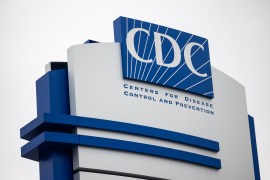Officials, Activists Respond to Announcement of HIV/AIDS Drug Policy Shift in South Africa
Health officials and patient advocates continue to react to last week's "unexpected" announcement by South African officials that the government will begin providing the antiretroviral drug nevirapine to rape survivors and may soon do the same for all HIV-positive pregnant women, the New York Times reports. The Times called the decision an "important policy shift" for President Thabo Mbeki, who has "repeatedly" questioned the safety of such drugs and has refused to expand nevirapine access to all HIV-positive pregnant women in South Africa in order to prevent vertical transmission of the virus. Dr. Nono Simelela, the head of South Africa's AIDS program, stated that it could take weeks for the health department to draft guidelines for dispensing antiretroviral drugs to all women who have been sexually assaulted. Simelela said that while protocols are being developed, the government will not punish doctors who prescribe antiretrovirals. Many HIV/AIDS patient advocates have reacted with "astonishment" to the announcement, which Dr. Glenda Gray, director of the perinatal HIV research unit at Chris Hani Baragwanath Hospital in Soweto, called "a sign that miracles do happen."
Court Battle Will Continue
Despite the policy shift, officials have said that they plan to continue with an appeal against a recent Pretoria High Court decision mandating that the government make nevirapine available to HIV-positive pregnant women in all public hospitals and health clinics. A government spokesperson said last week that the appeal is intended to address concerns that the judge "acted beyond his scope of power" by trying to determine national health policy through the legal system (Swarns, New York Times, 4/20). Democratic Alliance leader Tony Leon yesterday issued a statement calling for the government to resolve the "contradictions" in its current HIV/AIDS policy. "There is still a high degree of 'political schizophrenia' which can only be removed by decisive action," Leon stated, adding that the government should "withdraw its appeal to the Constitutional Court and put an end to the waste of public funds" in the ongoing court battle (South African Press Association, 4/21). Sipho Mthathi, deputy chair of the Treatment Action Campaign, the group that filed the original suit against the government, said that she "welcome[d]" the news of the government's commitment to the new nevirapine policy, adding, "Announcements get made, but practice is always what counts" (New York Times, 4/20). A report from NPR's Friday "All Things Considered" on the government's policy reversal is available
online (Wilson, "All Things Considered," NPR, 4/19).
Other Government Recommendations
In addition to recommending antiretroviral drugs for rape survivors and saying they may expand access for all HIV-positive pregnant women by December, South African government officials also last week recommended the following HIV/AIDS-related actions:
- The establishment of a Presidential HIV/AIDS Task Team to include Deputy President Jacob Zuma, Health Minister Manto Tshabalala-Msimang, Minister in the Office of South Africa's President Essop Pahad and Minister of Arts, Culture, Science and Technology Ben Ngubane.
- A "revamping" of the South African National AIDS Council to include all "HIV/AIDS stakeholders" in the country. This change will allow the council to "set priorities" and apply for money from the Global Fund to Fight AIDS, Tuberculosis and Malaria.
- Government "recognition" that antiretroviral drugs "make a difference" in treating HIV/AIDS and commitment to obtaining these drugs as inexpensively as possible by "engaging manufacturers, investigating generics and applying to the [global fund] for help."
- A request for the assistance of citizens with HIV/AIDS to "partner with government" to monitor the availability of such drugs at health institutions throughout the country (Cullinan, Health-E News, 4/19).






